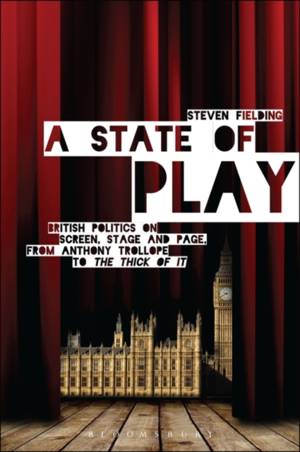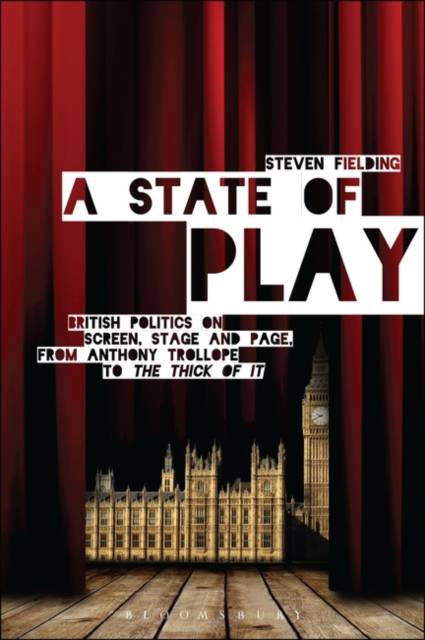
- Afhalen na 1 uur in een winkel met voorraad
- Gratis thuislevering in België vanaf € 30
- Ruim aanbod met 7 miljoen producten
- Afhalen na 1 uur in een winkel met voorraad
- Gratis thuislevering in België vanaf € 30
- Ruim aanbod met 7 miljoen producten
Zoeken
A State of Play
British Politics on Screen, Stage and Page, from Anthony Trollope to 'The Thick of It'
Steven Fielding
Hardcover | Engels
€ 296,95
+ 593 punten
Omschrijving
A State of Play explores how the British have imagined their politics, from the parliament worship of Anthony Trollope to the cynicism of The Thick of It. In an account that mixes historical with political analysis, Steven Fielding argues that fictional depictions of politics have played an important but insidious part in shaping how the British think about their democracy and have helped ventilate their many frustrations with Westminster. He shows that dramas and fictions have also performed a significant role in the battle of ideas, in a way undreamt of by those who draft party manifestos.
The book examines the work of overtly political writers have treated the subject, discussing the novels of H.G. Wells, the comedy series Yes, Minister and the plays of David Hare. However, it also assesses how less obvious sources, such as the films of George Formby, the novels of Agatha Christie, the Just William stories and situation comedies like Steptoe and Son, have reflected on representative democracy.A State of Play is an invaluable, distinctive and engaging guide to a new way of thinking about Britain's political past and present.
Specificaties
Betrokkenen
- Auteur(s):
- Uitgeverij:
Inhoud
- Aantal bladzijden:
- 312
- Taal:
- Engels
Eigenschappen
- Productcode (EAN):
- 9781849669788
- Verschijningsdatum:
- 1/06/2014
- Uitvoering:
- Hardcover
- Formaat:
- Genaaid
- Afmetingen:
- 155 mm x 234 mm
- Gewicht:
- 589 g

Alleen bij Standaard Boekhandel
+ 593 punten op je klantenkaart van Standaard Boekhandel
Beoordelingen
We publiceren alleen reviews die voldoen aan de voorwaarden voor reviews. Bekijk onze voorwaarden voor reviews.








